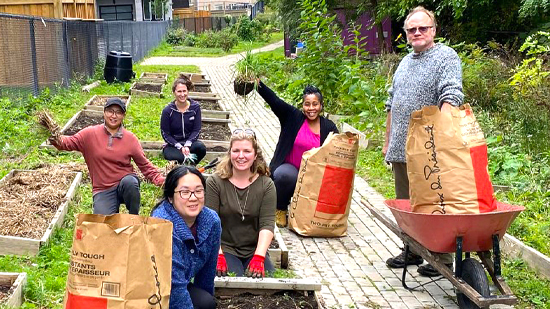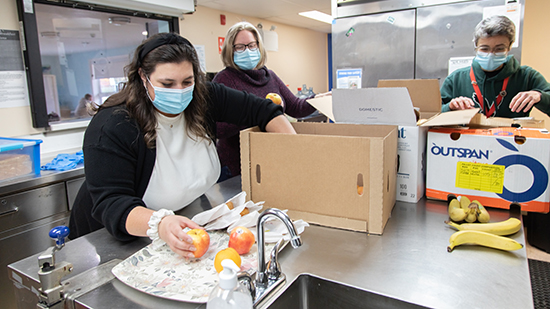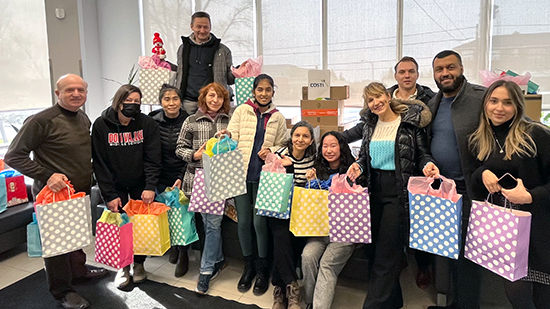So many in our community continue to struggle. With perennial challenges like homelessness, food security and mental health issues sharper and more entrenched, life is not just tough, but tougher than it’s ever been—pandemic included.
We know:
So many in our community continue to struggle. With perennial challenges like homelessness, food security and mental health issues sharper and more entrenched, life is not just tough, but tougher than it’s ever been—pandemic included.
We know:
In February 2023, the Mississauga Food Bank served 13,850 people, more than any other single month in its history and a 44 per cent increase over February 2022. And in 2022 it distributed 5.2 million pounds of food, four times the 1.3 million pounds it distributed in 2014.
The demand for adult mental health services in Ontario increased by 47 per cent between 2021 and 2022, while the demand for children and youth services grew by 104 per cent.
The Peel Poverty Reduction Strategy says an estimated 28,000 families live on ODSP, or $1,228 per month. When a one-bedroom listing is going for close to $3,000 and a living wage is considered $23.15, that is a math problem with no answer.
This past February, 72 people on average were turned away from a Toronto shelter each night.
The rates of mental health issues among people experiencing homelessness have increased during the pandemic. Almost two-thirds (64 per cent) of people surveyed through I Count 2021 reported having a mental health issue, compared to 48 per cent in 2018.
United Way continues to step up, funding and strengthening a crucial network of 300 agencies across 13 service areas so they can chip away at these challenges, providing:

Central food access through initiatives like the Black Creek Humber Summit food portal led by Jane/Finch Centre; the York Region Food Council, housed within York Region Food Network; and Eden Food for Change’s employment training in the culinary arts.

Mental health supports from a variety of programs, including Punjabi Community Health Centre’s SAHARA Family Enhancement service and The 519’s Counselling and Mental Health for Individuals and Families, as well as the Canadian Mental Health Association’s Youth Wellness program in York Region.

Meaningful employment for individuals facing barriers: through one of the Toronto Enterprise Fund’s newest employment social enterprises, RAINscape TO for Indigenous youth, or Career Navigator pathways—training, placements and wrap-around supports—with organizations such as Building Up, NPower Canada and the Labour Education Centre.

Vital shelter and homelessness services from agencies like The Neighbourhood Group, Blue Door and Our Place Peel.

Settlement support for our newest neighbours, like the 720 people placed with host families, thanks to the COSTI Ukrainian Host program, operating in Peel, Toronto and York Region. Or the 5,600 individuals who have been served through the Afghan Resettlement Fund, a partnership between the City of Toronto, Lifeline Afghanistan and United Way.

And across it all, Findhelp 211, connecting people in need to the non-emergency government and community services that can support them.
We know we are reaching people. Last year, funding dollars made it possible for United Way Greater Toronto’s network to ensure that: